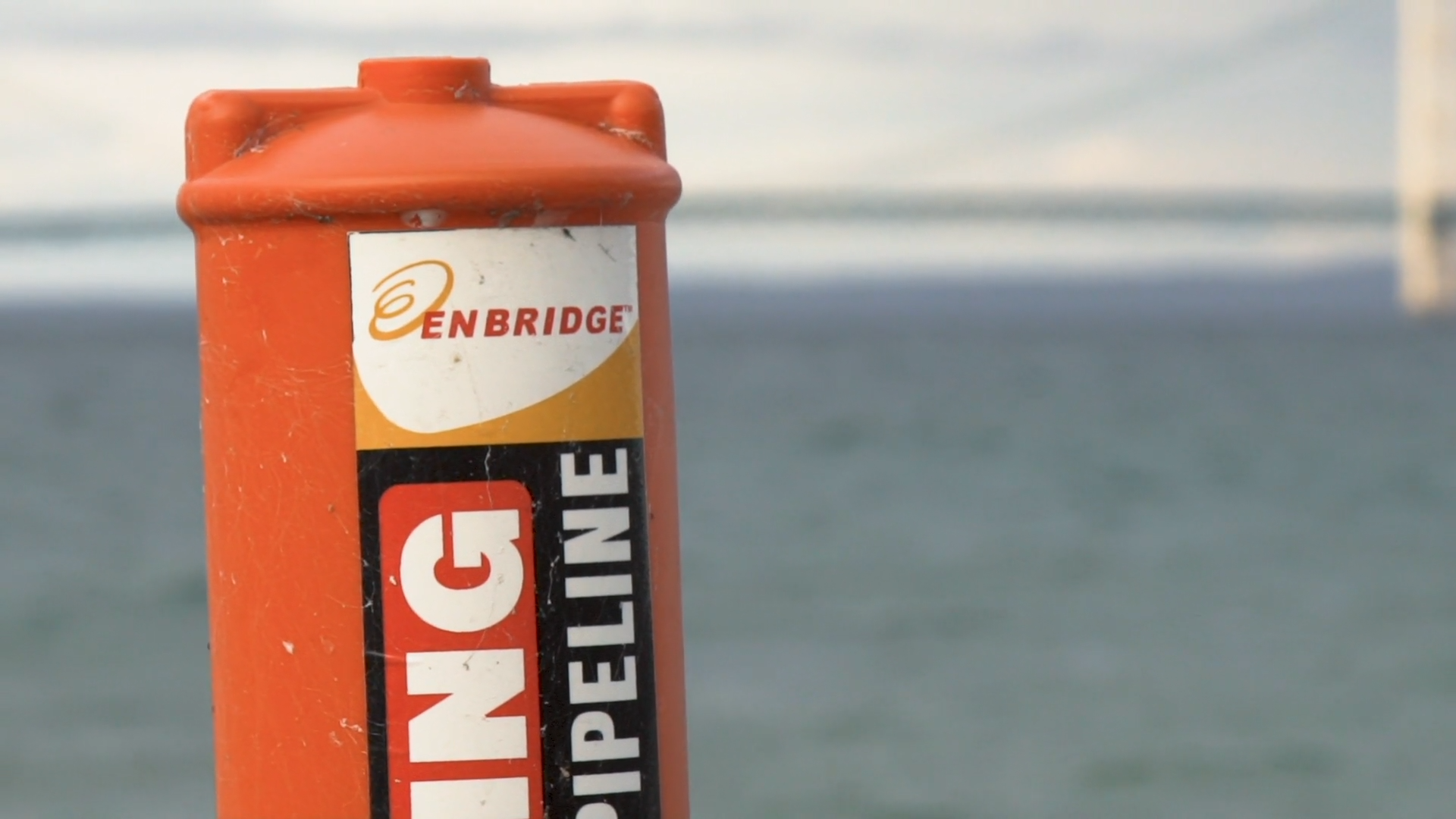
A new round of court proceedings commences in the long-running Enbridge Inc. Line 5 saga as Administrative Law Judge Dennis Mack oversees the cross-examination of a series of witnesses starting on Jan. 14.
The results of this cross-examination will play a role in the Michigan Public Service Commission’s decision on whether or not to grant Enbridge one of the key permits it needs to construct the Line 5 tunnel. This particular permit would allow Enbridge to replace and relocate a section of the Line 5 pipeline.
The Line 5 tunnel is a project by Canadian oil company Enbridge Inc. that would replace the current twin pipelines under the Straits of Mackinac with pipelines running through a tunnel in the bed of the bottom of the Straits. The tunnel would be between 60 and 250 feet underneath the lake bottom.
So far Enbridge has finished studying the rock bottom and creating the design for the tunnel, while it continues to monitor and maintain the current pipeline.
Of the permits it needs to begin construction, only the Michigan Department of Environment, Great Lakes and Energy has granted the company permits, while the U.S. Army Corps of Engineers conducts an Environmental Impact Analysis and the Michigan Public Service Commission considers the request.
“We are making progress on the Great Lakes Tunnel Project,” Bob Lehto, Enbridge area operations manager in northern Michigan, said in a statement. “The hearing is an important step to acquire a permit to relocate a segment of L5 within a tunnel. Our Enbridge team is eager to start construction because the tunnel will benefit Michiganders and the region.”
Within the bounds of record
Enbridge attempted to prevent testimony from pipeline industry expert Richard Kuprewicz and Bay Mills Indian Community Chairperson Whitney Gravelle, among others.
“In total they’ve filed nine motions to strike testimony from the record, multiple motions directed at testimony submitted by our client the Bay Mills Indian Community, and this is a very disappointing attempt to silence the voice of Tribes before the Michigan Public Service Commission,” said Christopher Clark, an Earthjustice attorney who is representing the Bay Mills Indian Community in the case.
One witness in question was Richard Kuprewicz, a chemical engineer with decades of experience in the oil and gas industry. Kuprewicz is also president of Washington-based Accufacts Inc.
MPSC staff testified previously that the risks associated with the Line 5 tunnel are negligible and would eliminate the risks of oil leaking into the Straits by protecting the pipeline from anchor strikes as well as providing space for a pipeline leak to go without contaminating the water.
But Kuprewicz, in written testimony filed on Dec. 14, argued that the risks were low, not negligible.
“This testimony fails to recognize that both propane and crude oil are highly hazardous and volatile substances and there is always a risk of explosion when handling these substances,” Kuprewicz wrote. “When transporting these substances through a pipeline enclosed in a tunnel, the risk of an explosion is enhanced which in turn enhances the probability that the secondary containment vessel will fail.”
In his testimony, Kuprewicz also noted that ignition could come from equipment maintained in the tunnel, brought in by staff or even static electricity, and that propane can generate “a tremendous amount of pressure.”
“A release in this unique environment carries the risk of both loss of human life and the release of crude oil and propane into the Great Lakes as an explosion in such a confined structure will most likely violate the tunnel’s secondary containment intent,” he wrote.
In Enbridge’s motion to strike Kuprewicz’s testimony, they argued that Kuprewicz introduces a new issue that should have been introduced in the Bay Mills Indian Community’s direct case, rather than in a rebuttal testimony.
Clark in response claims that Kuprewicz’s testimony is a rebuttal to the testimony offered by MPSC staff.
In a ruling from Judge Mack filed on Jan. 13, Kuprewicz’s testimony was accepted.
Of the nine motions to strike testimony, six of them were granted, including testimony from Bay Mills Indian Community Chairperson Whitney Gravelle.
So what’s next for the case?
After the cross-examination, which is expected to end by Jan. 25, both parties have to write brief summaries of the testimony due Feb. 18 and responses to the other party’s brief due March 11, before all of it is submitted to the MPSC commissioners for a decision.
The decision regarding the permit will take months, with some estimates at June for an announcement.
In December, Michigan Gov. Gretchen Whitmer dropped a federal lawsuit seeking to shut down Line 5 in favor of focusing on a state-level one. Enbridge is seeking to move that state suit to federal court. On Jan. 18, U.S. District Judge Janet Neff struck Michigan Attorney General Dana Nessel’s latest attempt to keep the case in state court.
Editor’s Note 1/20/21: This story was updated to clarify the purpose of the permit from the MPSC and the state of the suit between AG Nessel and Enbridge.
Catch more news on Great Lakes Now:
Climate Ghosts author: To save more species, treat them like kin
Enbridge seeks federal jurisdiction in oil pipeline dispute
Ignore the buzz, here’s why Enbridge Line 5 won’t likely close anytime soon
Featured image: A marker indicates the location of Enbridge’s Line 5 pipeline in the Straits of Mackinac. (Great Lakes Now Episode 1024)




